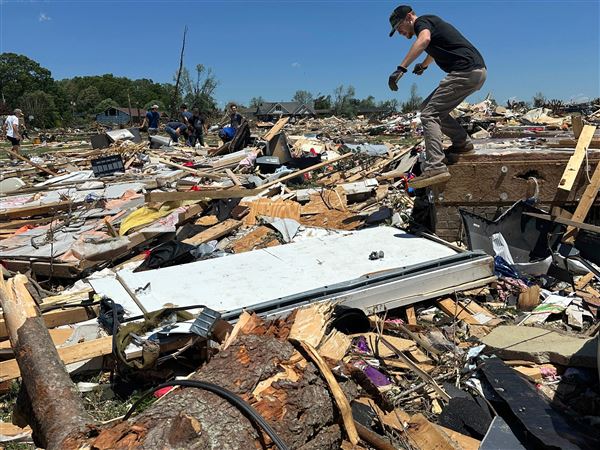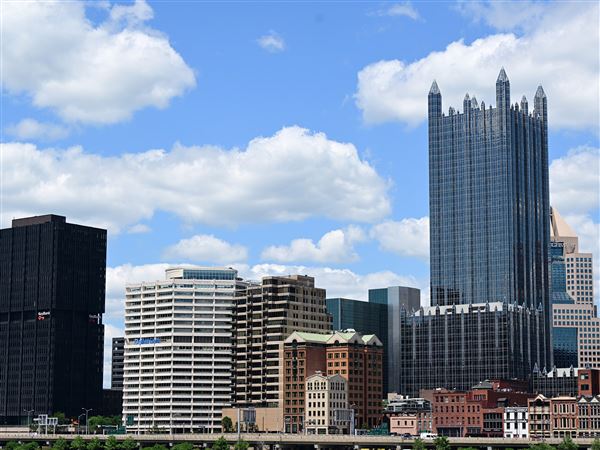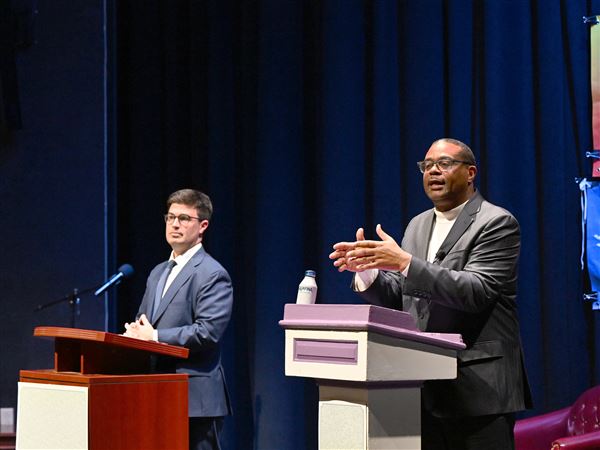As Brazil seeks to develop its shale reserves, a group of delegates representing energy companies, government and business groups stopped in Pittsburgh to see what lessons could be learned from the Marcellus Shale.
About a dozen representatives were hosted by law firm Reed Smith, which fielded questions about drilling techniques, regulations and the environment. The visit, which includes meetings with state regulators and drilling companies, followed two days of meetings in Washington, D.C., that started Sunday.
Speaking through an interpreter, Sandro Angelo de Andrade, vice mayor of the city of Patos de Minas, said the region currently relies on farming and that natural gas development “will bring a new economic future and provide new jobs … and help farmers lower the cost of their energy.”
“Gas development will attract new investment,” he said at Reed Smith’s offices Downtown.
The Pittsburgh region has hosted several delegations from countries seeking to develop their shale reserves. Among those, another group of Brazilian business and energy professionals last year met with officials in southwestern Pennsylvania and Washington, D.C., following a trade mission Republican Gov. Tom Corbett made to Brazil. In July, a group of diplomats from China visited the area.
Brazil is the second-largest producer of hydroelectric power in the world, trailing only China, and about 75 percent of the country’s electricity depends on it. However, a severe drought has threatened the country’s main power source.
“This reliance on one resource for most of the country’s electricity generation, combined with the distant and disparate locations of its population centers, has presented electricity reliability challenges,” the U.S. Energy Information Administration said in a June report.
In February, Reuters reported that the state-run crude producer Petrobras — the only Brazilian importer of liquefied natural gas — went to the spot market to purchase LNG at about $18 per million British Thermal Units to $19/MMBtu. It then sold it in Brazil at a subsidized price of $11/MMBtu to $12/MMBtu, according to Reuters.
One challenge in developing shale natural gas in Brazil is the ownership of mineral rights. In the U.S., those rights are typically held by private owners. In Brazil, the government holds those rights.
Speaking through an interpreter, Joao Batista Nunes Nogueira, president of the Federation of Industries for the State of Minas Gerais, an industry association, said the government created blocks of acreage.
“Our state has about 39 blocks, about 24 to 25 of which are prospective for natural gas,” he said, adding that shale development is early in Brazil and there isn’t a regulatory framework to oversee drilling yet.
Stephanie Ritenbaugh: sritenbaugh@post-gazette.com or 412-263-4910.
First Published: October 16, 2014, 4:00 a.m.

















